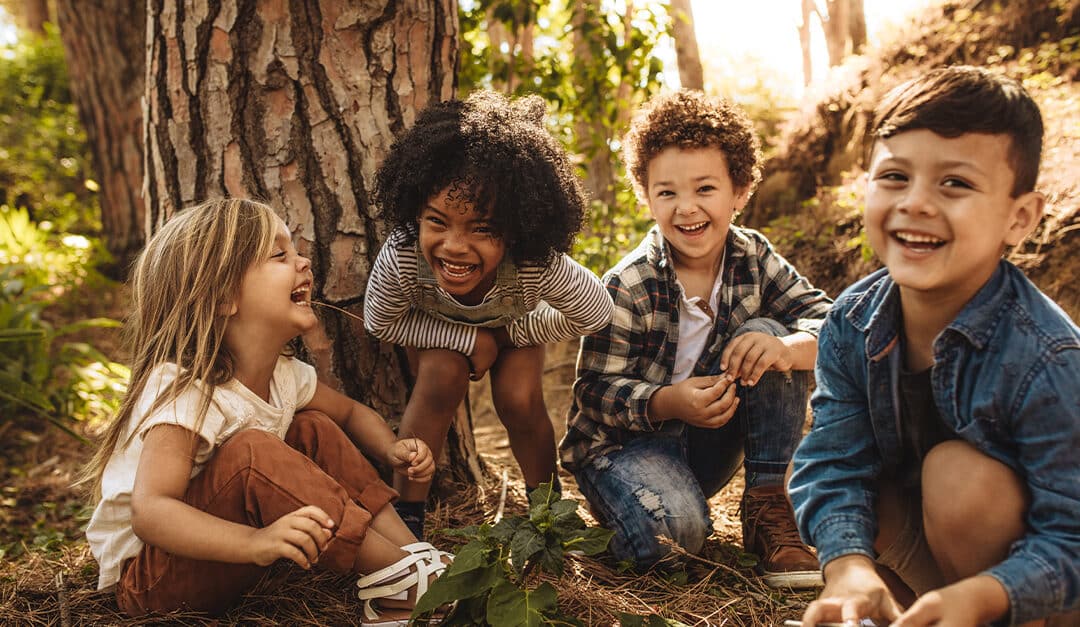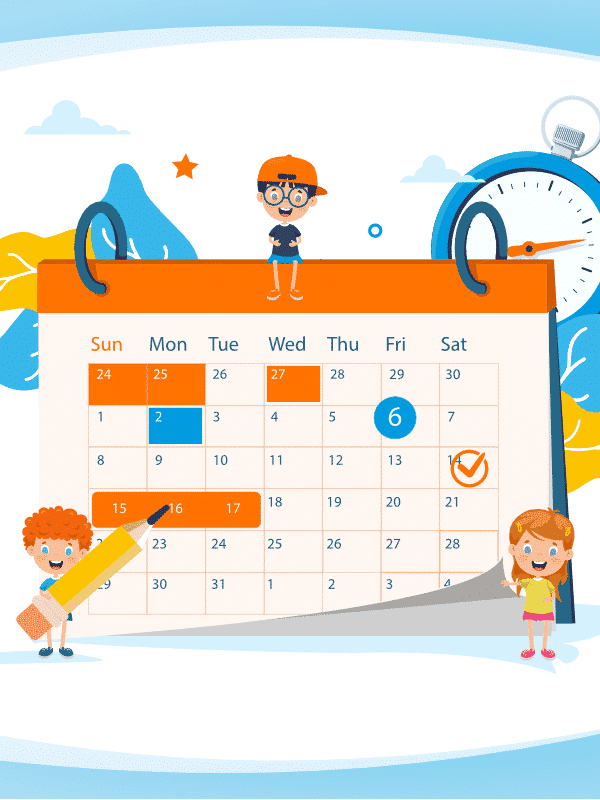Friends are a very important part of childhood. Having someone to play with, share secrets and feelings with, and just grow up with will always be a cherished memory. It’s part of what shapes our childhoods and us as individuals.
But let’s be honest, sometimes making friends can be difficult. Especially if you add a second language to that equation. This can make kids very nervous. And even if they are eager to make friends in their second language, they might still find it hard if they’re not fluent.
So if your kids are just learning Spanish, don’t let that stop them from socializing and having fun. Spanish is a beautiful language, even more so if it’s shared among friends. Here are some tips and tricks on how to make friends in Spanish.
Why Making Friends in Spanish is Good for Your Kids
They’ll improve their Spanish
This might be an obvious one. But the thing is this is the best way of improving their Spanish. It’s not just one more method of doing it, it’s the ultimate method. Because if they speak with a native, they’ll learn more than what a normal school will teach them.
They’ll learn real life vocabulary. They’ll also improve their listening not with a recorded voice, but with a real Hispanic person. Their fluency will achieve higher levels, because they’ll be forced to speak, and so on.
We must say, they’ll do all this by having fun. Because for them it’ll be just a casual conversation with their friends. Maybe a bit difficult because it’s in another language, but the important thing is they’re with friends. So they won’t feel frustrated or bored.
They’ll become culturally rich
Language is inherently connected to culture. So if you want your kids to learn a new language, you probably should also want them to know the culture of that language. Well, we have news: If they make native Spanish speakers’ friends, they’ll learn a lot about their Hispanic countries.
Your children can ask them everything they’re curious about, like their traditions, everyday expressions, history, classical food, games they play…
This will make your kids learn about other life perspectives. Therefore, they’ll become more empathetic. And who knows? Maybe they’ll learn a tradition or way of living they want to implement in their own lives.
Who wouldn’t want their children to be smarter, more cultured and, overall, a better person?
Spanish Words about Friends
Here are some friends vocabulary terms in Spanish your children will benefit from, because they’re common words when talking to friends:
- Friends – Amigos
- Friend / Buddy – Amigo
- Best friend – Mejor amigo
- New friend – Nuevo amigo
- Friendship – Amistad
- Classmate – Compañero
- Hello – Hola
- Good morning – Buenos días
- Good afternoon – Buenas tardes
- Buenas noches – Good night
- Goodbye – Adiós
- Awesome! – Genial!
- Toys – Juguetes
- Play – Jugar
- Together – Juntos
- Get along – Llevarse bien
Introduce Yourself in Spanish
One of the most important things when making friends is to introduce yourself. This is very important, because it’s the way they’ll know you. Maybe you can say your name, a hobby and a couple fun facts about you.
Here are some useful phrases in Spanish for kids to introduce themselves to their potential new friends:
- Hola, soy… / Hi, I’m…
- Hola, mi nombre es… / Hello, my name is…
- Buenos días, me llamo… / Good morning, my name is…
- Qué onda, soy… / What’s up, I’m…
- ¿Cuál es tu nombre? El mío es… / What’s your name? Mine is…
- Soy de… / I’m from…
- Vivo en… / I live in…
- Tengo diez años, ¿y tú? / I’m ten years old, and you?
- Me gusta mucho el fútbol, ¿y a ti? / I really like soccer, do you?
- ¿Te está gustando la clase de español? ¡A mí sí! / Are you liking the Spanish class? I am!
- Mucho gusto, soy… / Nice to meet you, I’m…
- Mi cumpleaños es el trece de enero. / My birthday is on January 13th.
- Cumplo siete años el ocho de junio, ¿y tú? / I turn seven years old on June 8th, and you?
- Mi pasatiempo es… / My hobby is…
- Me llamo… y siempre escucho música de Taylor Swift. / My name is… and I always listen to music by Taylor Swift.
You could also check our Spanish greetings and goodbyes blog for more information on how kids could say hi and goodbye to their friends.
Ask Questions in Spanish
Asking questions, it’s important to show someone that we want to get to know them, to make them feel seen. So, if your children want Hispanic friends, they’ll have to do that. Questions are also great to continue a conversation so there are no awkward silences.
Even better if the questions are in Spanish, because your friends will feel like you’re really interested in their roots. We bet they’ll love to answer in Spanish and continue the conversation in that language, which will be super beneficial for your children.
They don’t even have to ask questions about the Spanish language. They can just ask in Spanish about movies, games, food, cartoons, or any interesting children’s topic. We bet, like this, the conversation will be more fluent.
Here are some questions your kids could ask another kid to make friends in Spanish:
- ¿Cómo estás? / How are you?
- ¿Cómo te sientes? / How do you feel?
- ¿Por qué te gusta tanto el basketball? / Why do you like basketball so much?
- ¿Qué quieres ser de grande? / What do you want to be when you grow up?
- Hey, mi superheroína favorita es La Mujer Maravilla, ¿cuál es el tuyo? / My favorite superheroine is Wonder Woman, which one is yours?
- ¿Quieres venir a jugar con mis amigos? / Do you want to come to play with my friends?
- ¿A qué quieres jugar? / What do you want to play?
- ¿Cuál es tu película favorita? / What’s your favorite movie?
- ¿Tienes alguna mascota? Yo tengo dos perros. / Do you have any pet? I have two dogs.
- ¿Me puedes ayudar con esto, por favor? / Can you help me with this, please?
- ¿Quieres ser mi amigo? / Do you want to be my friend?
- ¿Quieres venir a mi fiesta de cumpleaños? Habrá pastel. / Do you want to come to my birthday party? There’ll be cake.
- ¿De dónde eres? / Where are you from?
- ¿Eres de Uruguay, cierto? ¿Cuál es tu comida favorita de ahí? / You’re from Uruguay, right? What’s your favorite food from there?
- ¿Quieres venir a mi casa a comer? / Do you want to come to my house to eat?
Do Activities in Spanish with Your New Friends
When kids are trying to make friends in Spanish, they shouldn’t feel like they’re studying. It should be just like when they make friends in their native language. This way they’re truly having a good time and not getting stressed over a word they can’t pronounce or an expression they don’t understand.
To help them, here are a couple things children can do to make friends in Spanish without the pressure of learning the language. That will come naturally with this fun, friendly environment.
Invite others to play your favorite sport
A lot of kids love sports. So, your children can ask their classmates or neighbors to play their favorite sport with them. They can say something like: “¿Quieres jugar béisbol con nosotros?” (Do you want to play baseball with us?) or “¿Te gustaría venir a jugar fútbol?” (Would you like to come play soccer?).
During the game, they should still speak in Spanish. If not everything, at least add some Spanish words every now and then.
On our TruFluency Kids blog we have some Spanish words and phrases for kids playing different sports. Check them out with your kids as these could come in handy for this tip.
Play a game in Spanish
A good idea is for your kids to play any game they want in Spanish. They can do this with the new guy at school, their classmates, other kids at a party… But do you know what’s an even better idea? For them to ask a Hispanic kid they know to play a game from their country.
This way they’ll learn about a new country, and of course a new cool game in Spanish.
They could say: “Enséñanos cómo jugar algún juego de tu país” (Teach us how to play some game from your country).
Talk about their favorite show in Spanish
You can tell your kids to invite the new Hispanic neighbor, their language classes’ classmates or their friends’ friends to watch a show in Spanish. They could ask: “¿Quieres venir a mi casa a ver Las Pistas de Blue?” (Do you want to come to my house to watch Blue’s Clues?)
Make some popcorn or a healthy snack for them. And prepare a children’s tv show in Spanish for them to watch. It can be in English dubbed in Spanish or a show that’s from a Spanish speaking country.
It doesn’t matter if the kids don’t know every word. The context, the images and the actions the characters do will help them understand what’s going on. And they’ll inevitably acquire some Spanish.
But it doesn’t stop there. Make all the kids discuss the show after watching it. They could talk about their favorite character, what they like about it, what they think will happen in the next episode, and everything that comes to their mind. The only rule is to speak in Spanish.
This will make all children have a cool time in Spanish and bond, while improving your kids’ language skills.
We have some blogs on Blue’s Clues and Paddington in Spanish children could use for this activity.
Make Friends in Spanish in TruFluency Kids Classes
Here’s the best tip we can give for your kids to make friends in Spanish: Sign them up for TruFluency Kids Spanish immersion classes.
Our classes are taught by native teachers.
This means your kids will only learn truly useful Spanish native people actually use in a real-life situation. It also means they’ll start training up their ears for a native Spanish accent.
We also teach through all kinds of fun Spanish activities. That is singing, dancing, crafting and playing games. This is perfect not only for students to acquire their second language in a natural way. But also, for them to make friends with their classmates, as they’ll all be having fun.
Take a trial class now! There are no more than six students per trial class, so everything is more personalized. You’ll notice that it’s a great Spanish environment for them to learn and make friends. After it, there will be a Q&A for all parents to ask their questions about our method.
Don’t lose your chance and start now. With our help your kids’ next friends are going to be native Spanish speakers.


